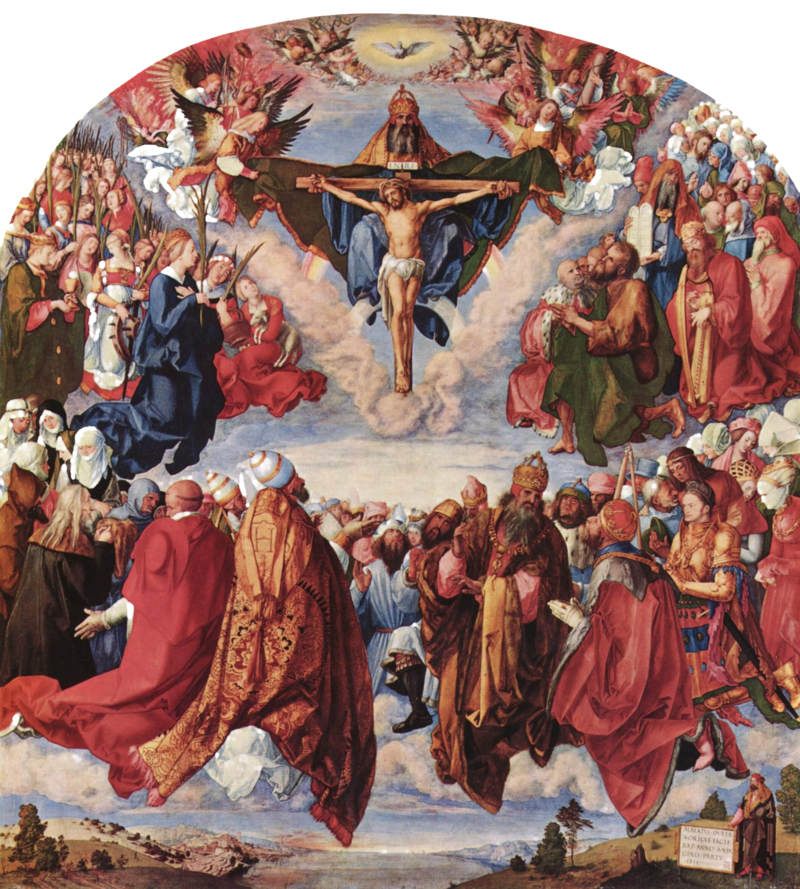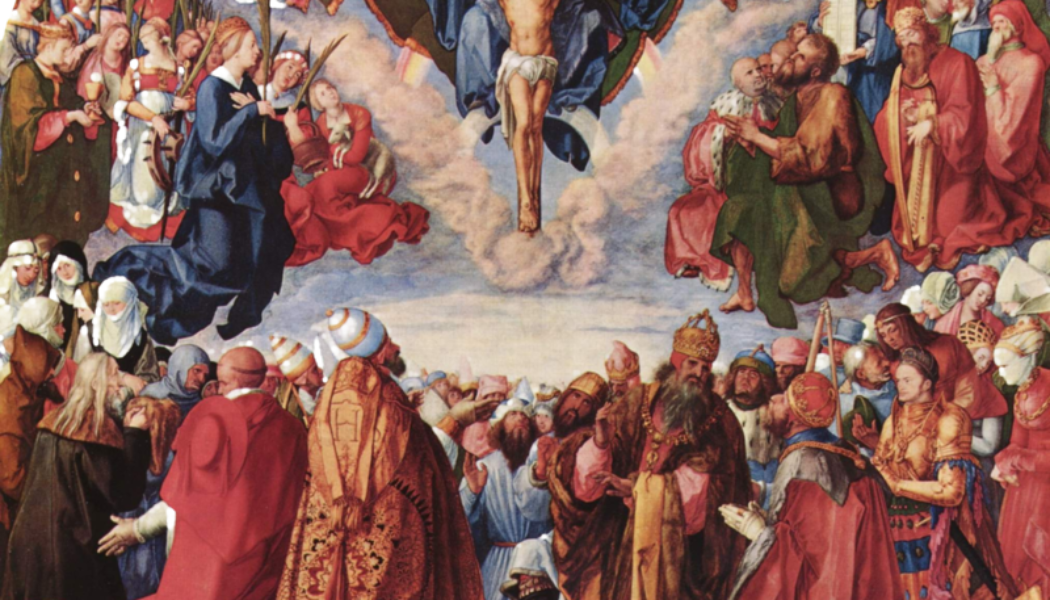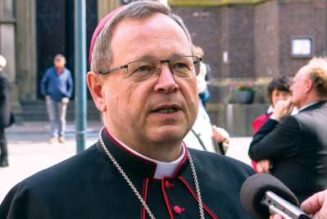This week’s twin celebrations – All Saints and All Souls – provide an occasion to step back from our current circumstances in the Church and the world, and to view things against a broader horizon.
More than a distant constellation of moral exemplars, more than even a host of intercessors pleading for us before the Throne of Grace, the Communion of Saints is what awaits each one of us whose salvation has been won through the sacrifice of Jesus Christ. The glorious diversity of saints is perfected in, even as it reflects, the splendor of the Triune God in whose life they now share in full.
If beatitude is what we were made for, our ultimate destination and goal, the commemoration of All Souls is a reminder that the way is narrow. The souls in Purgatory will go to Heaven. But even as we pray for their purification and speedy welcome into beatitude, we cannot but be reminded of the urgent need for repentance and conversion in our own lives.
And that brings us to where the rest of us are, this pilgrim Church on earth. And down here, we’re a bit of a mess.
The Church is mired in another of her periodic bouts of self-reflection, which often seem more like navel-gazing than an examination of conscience – in recent months and years, particularly around the Synod on Synodality.
Rome seems prepared to declare the Synod a resounding success even before it has begun in earnest – despite serious concerns about participation and a disconcerting naivete – to put it charitably – regarding some fundamental matters of the faith. (Fr. Murray’s take-down of the Continental Stage Document details many of these concerns.)
The Synod document aside, it remains disconcerting that very few Catholics still seem to understand what “synodality” means or this Synod is intended to accomplish. And it’s even more disconcerting that almost everyone involved with the Synod seems eager to breeze past this inconvenient fact.
By virtue of our baptism, we all share in the mission of the Church. Each of us participates in this mission according to our particular vocation and circumstances. The hierarchical nature of the Church and ecclesial authority serves, rather than contradicts, this shared mission. There is no part of the People of God to whom this missionary imperative does not extend.
This is, in brief, the vision of the Church laid out by Vatican II in Lumen Gentium, and everywhere the Church is flourishing, this reality can be found in action. If that is what synodality means, I’m all for it.
But if that’s what synodality means, it’s certainly not how the Synod has been “marketed” and “sold.”

It’s understandable that those responsible for guiding the synod process want it to succeed. But by emphasizing the Synod’s radical novelty in an apparent attempt to make it seem “relevant” and “exciting,” they are doing it a disservice. The boosterism and sloganeering, verging on triumphalism, coming out of Rome seem almost designed to exacerbate that problem.
It’s one thing to trust the Holy Spirit. It’s one thing to trust the dominical promises to preserve Peter and that the gates of Hell shall not prevail against the Church. It’s something else entirely to trust the discernment and judgment of a group of people chosen primarily for their willingness to say almost anything – however implausible or inconsistent – in order to paint the still-developing Synod process as an unmitigated triumph.
At the press conference announcing the release of the Continental Stage Document, one advisor to the synod secretary-general said, “Synodality is not a way of being the Church it is the way of being the Church.” Ok, but are we really to believe that the Church has not really been the Church until now? Are we to believe that all the teachings and wisdom of the Church over 2,000 years were not also the fruit of careful discernment?
Are we really to believe that the sensum fidelium consists in the input of a tiny sliver of the Catholics alive today, while ignoring two millennia of witnesses whose discernment and holy wisdom are often now treated with contempt and scorn simply because we’ve found something shiny and new to replace what was “old” and “backward”?
Synodality either has deep roots in the life of the Church or it is radically and utterly new; it can’t be both. Those who emphasize the latter in an attempt to sell the faithful on how successfully the synod is progressing – a synod most of them do not understand and care little about – seem short-sighted at best. It’s certainly not a sign of the sort of sober discernment and reflection worthy of this Synod or the Church.
This week, we join the rest of the Church in celebrating the saints and praying for the souls of all the faithful departed. As the barque of Peter shudders through choppy seas, we can practice being a “listening Church” by turning our attention to the witnesses who by their lives have proclaimed the Truth that saves. Listen to, and imitate, those who have found the way by grace through the narrow gate.
[S]ince we are surrounded by so great a cloud of witnesses, let us rid ourselves of every burden and sin that clings to us and persevere in running the race that lies before us while keeping our eyes fixed on Jesus, the leader and perfecter of faith. For the sake of the joy that lay before him he endured the cross, despising its shame, and has taken his seat at the right of the throne of God. [Heb. 12:1-3]
Here is a word we can trust. Here is the People of God, intent on ridding itself of sin with eyes fixed on Jesus. Here is the Church of which we sinners here on Earth are but a small part. Let’s listen to this cloud of witnesses, and walk – even run – with them along the narrow way.
*Image: Adoration of the Trinity by Albrecht Dürer, 1511 [Kunsthistorisches Museum, Vienna]
You may also enjoy:
+James V. Schall, S.J.’s A Design of Eternal Salvation
Fr. Timothy V. Veverek’s Rediscovering Our Union with Christ
Join Our Telegram Group : Salvation & Prosperity







![This guy threw out a hard drive containing $384 million of Bitcoin. Now he’s fighting to dig up the landfill [language warning]…](https://salvationprosperity.net/wp-content/uploads/2021/12/this-guy-threw-out-a-hard-drive-containing-384-million-of-bitcoin-now-hes-fighting-to-dig-up-the-landfill-language-warning-327x219.jpg)
